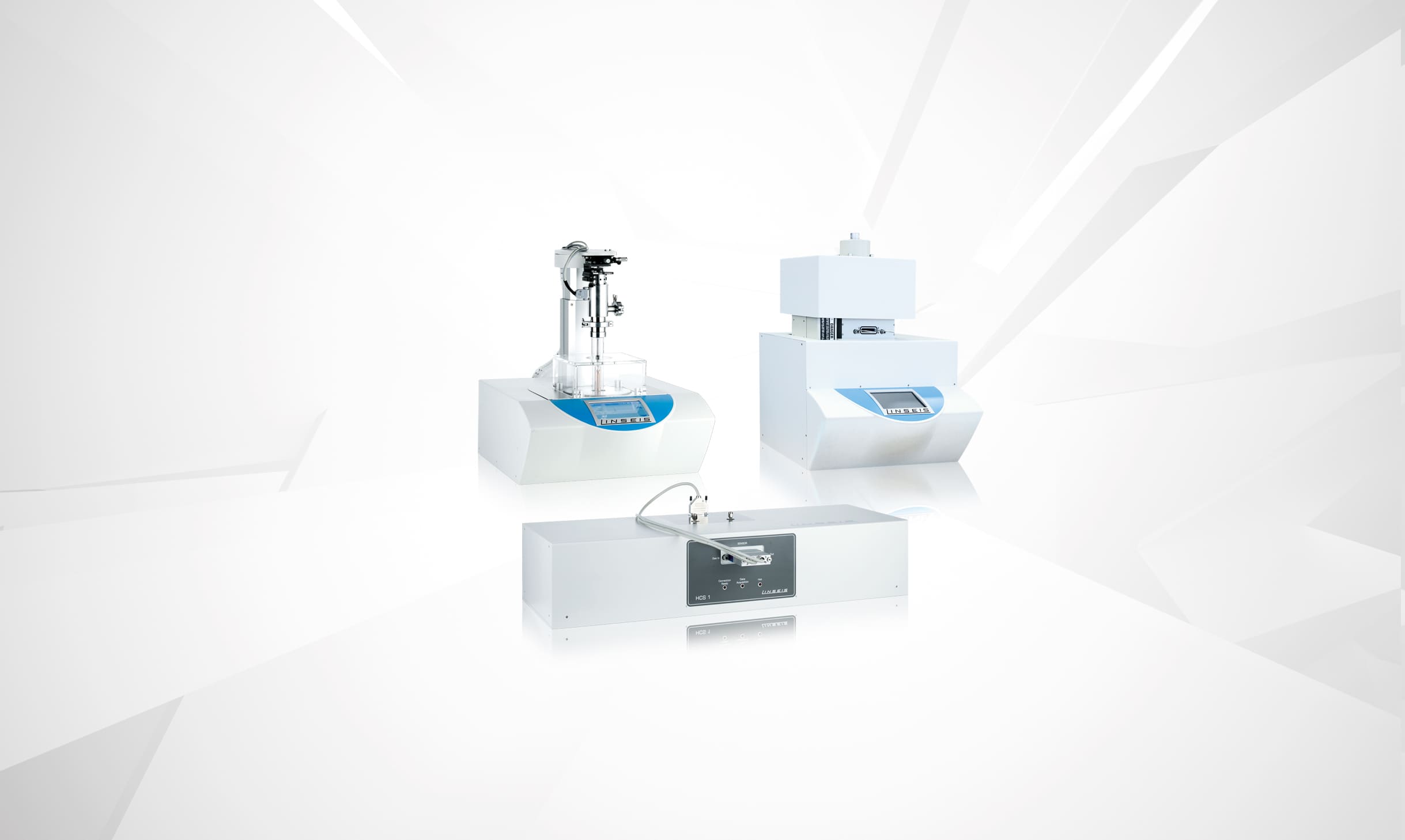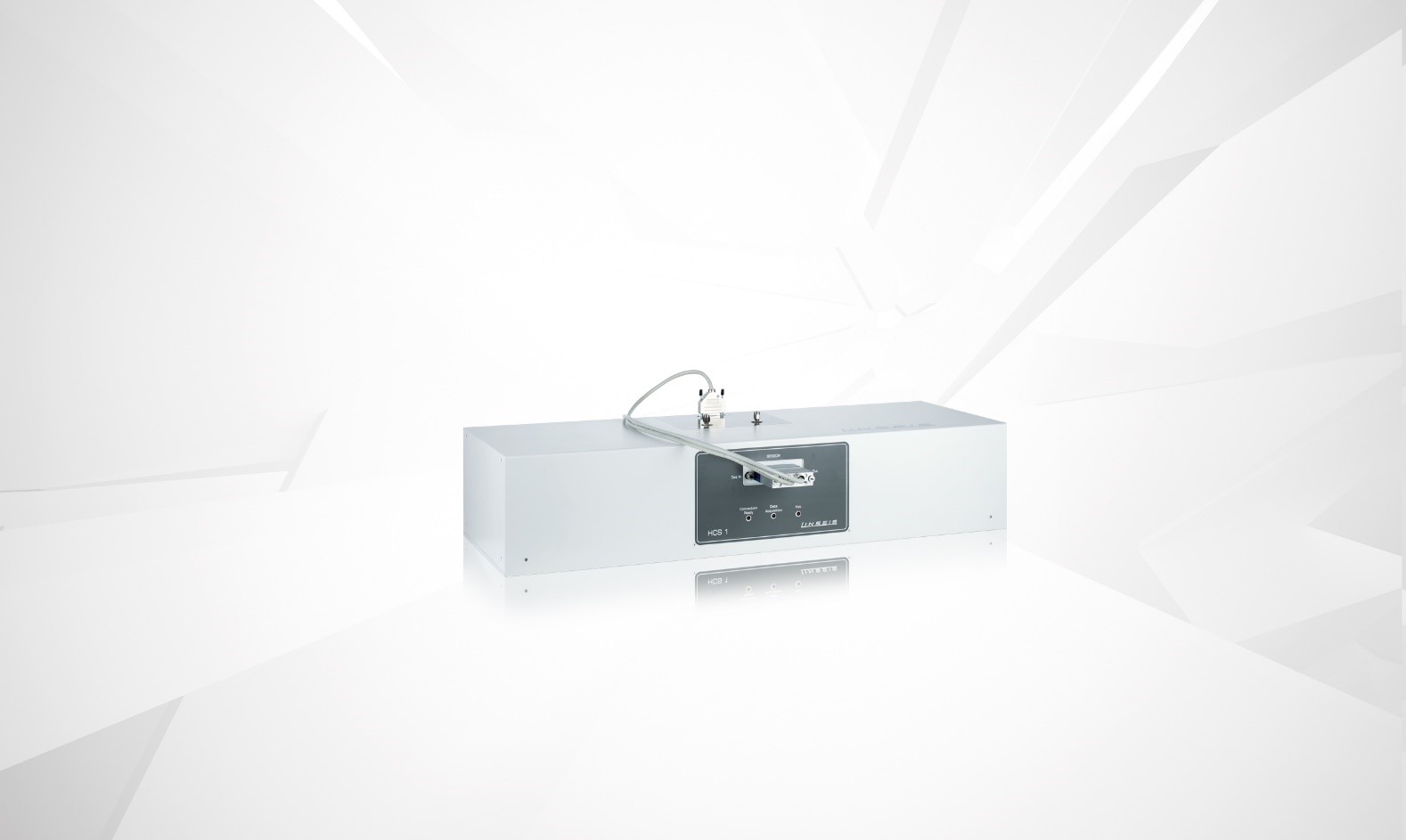Hall Effect Analyzer
HCS-Hall Effect Measurement System & TFA Thin Film Analyzer
If a current is applied to a semiconducting device which is set into a magnetic field, the so called Hall Effect can be observed. It is caused by the Lorentz Force, which is affecting the charge carriers to move perpendicular to the magnetic field lines in circular paths.
As a result, there will appear an increase in charge carriers at one side, which will result in an electric field inside the device, perpendicular to the magnet field and current direction, as. The voltage of this field can be measured and is considered as Hall Voltage VHall.
A steady state will be reached when the force of Hall voltage and the Lorentz force compensate each other, so there is a proportional relation between Hall Voltage (VH), magnetic field (H), current (I), the so called Hall coefficient (RH). The Hall coefficient also depends on the thickness of the device (d).
From this relationship, the Hall Coefficient can be determined by measuring the Hall Voltage under a given field and current with a known device thickness, following the formula:
\(V_{H} = frac{R_{H} ⋅ I ⋅ H}{d}\) or \(R_{H} = frac{V_{H} ⋅ d}{I ⋅ H}\)
Products
HCS-Hall Effect Measurement System & TFA Thin Film Analyzer






